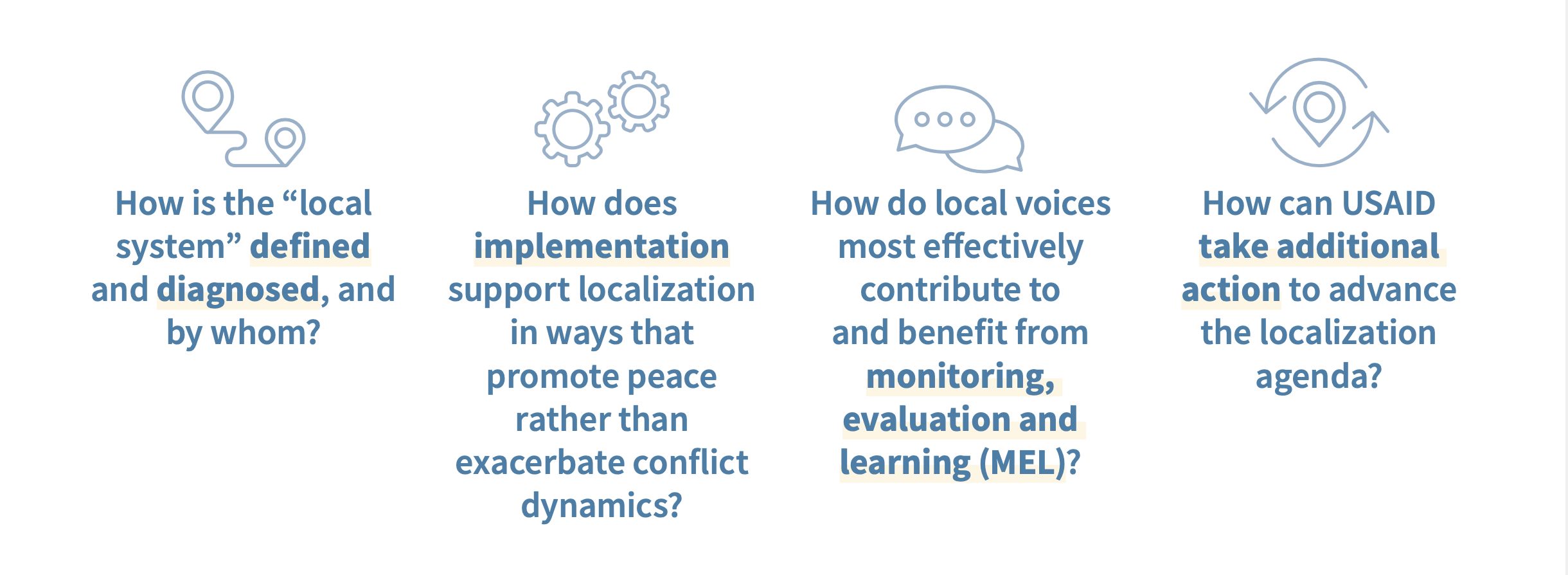USAID’s renewed vigor to put the localization agenda at the forefront of foreign development assistance comes at a time when 80% of the countries where USAID has a mission (or, at a minimum, a program presence) are fragile and/or conflict affected. USAID and its implementing partners are responding to complex crises globally, from Lebanon to the Sahel to Haiti.
Other factors, such as the destabilizing impacts of COVID-19 and the Russian invasion of Ukraine, further highlight the relevance and timeliness of USAID’s focus on localization in conflict contexts. However, localization in conflict contexts must be thoughtfully and intentionally considered. Done incorrectly, efforts at localization can cause real harm; but if done properly, these efforts can positively affect peace and stability.
In a new paper, “Localization in Conflict Contexts”, four of MSI’s peace, conflict, stabilization, and governance experts posit that USAID and its international implementing partners must contextualize localization approaches, adapt expectations to the specific context, and develop localization objectives and strategies with an iterative understanding of the dynamics of the conflict. Localization should look different in conflict contexts and be informed by clear opportunities to address the drivers of conflict and the constraints that must be acknowledged to avoid making a difficult situation worse. At its core, localization implies a lead role for local actors in program prioritization, implementation, monitoring and learning.
To contribute to the ongoing discussion, the authors explore four considerations to guide intentional action toward localization in conflict contexts (see graphic below), and present practical strategies and field-based examples to deliver conflict-sensitive localization results drawn from MSI’s experience in the Democratic Republic of Congo, Colombia, Mozambique and Ukraine.

The paper’s authors include Larry Cooley, President Emeritus and Senior Advisor; Lynn Carter, Senior Advisor for Governance and Conflict; Allison Poyac-Clarkin, Senior Vice President for Programs; and Christy Martins, Practice Area Lead for Peace and Stability.
MSI is pleased to further contribute to the growing body of work focused on localization. Previous contributions include “Perspectives on Localization”, authored by Larry Cooley, Jean Gilson (DAI), and Indira Ahluwalia (Palladium and KAUR Strategies), and “Grants Under Contract and Local Subcontracts: Helping Meet USAID’s Locally Led Development Goals”, authored by Sandra Amis, Roshana Cohen (Chemonics) and Mike Walsh (DAI), both prepared in coordination with PSC’s Council of International Development Companies.